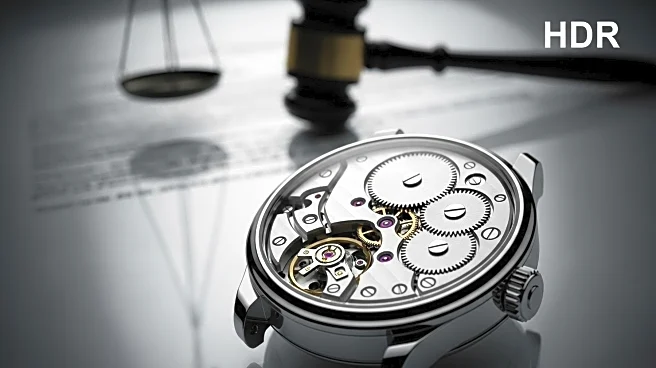What's Happening?
The Paris Court of Appeal has ruled on Rolex's attempt to protect confidential information in an antitrust case against the French Competition Authority. Rolex sought to keep data on production, sales, and product availability confidential, but the court only granted protection for data from 2018 onward, citing the 'five-year presumption' principle. This principle suggests that business information older than five years loses its confidential status unless proven otherwise. The decision requires Rolex to unredact older data, potentially exposing historical production and allocation practices.
Why It's Important?
The court's decision challenges the traditional secrecy maintained by luxury brands like Rolex, which use confidentiality as a strategic tool to protect business intelligence and brand mystique. By insisting on transparency, the ruling could impact how luxury brands manage their data and competitive strategies. The exposure of historical data may alter perceptions of scarcity and demand, affecting brand positioning and market dynamics. This case sets a precedent for how courts may handle confidentiality claims in future antitrust cases.
What's Next?
Rolex must revise its submissions and unredact older data, which could lead to increased scrutiny of its business practices. The ongoing legal proceedings will determine whether Rolex's prohibition on online sales was lawful, further influencing the brand's distribution strategies. Other luxury brands may need to reassess their confidentiality policies in light of this ruling, balancing transparency with strategic secrecy.








